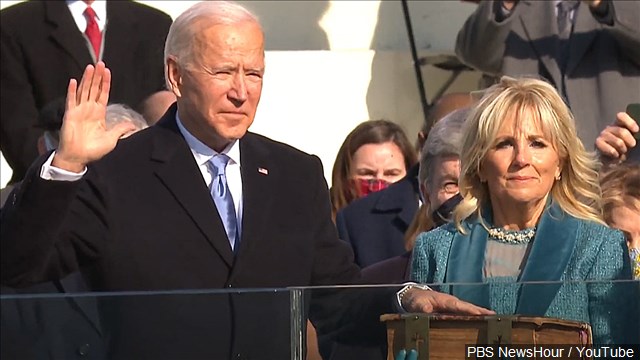Too little democracy is why India’s reforms and progress are stymied
December 11-
Amitabh Kant’s diagnosis is wrong: India doesn’t have too much of a democracy. It has too little of it for economic growth.
The Economist Intelligence Unit releases an annual index of democracy. India’s rank in this index has slipped from 27 in 2014 to 51 in 2019. There is a stark contrast in how India was doing on various parameters of the Democracy Index in 2008-14, as compared to 2014-19.
You cannot ignore the co-relation between India’s declining economic growth and its ranking in the democracy index.
Chief Executive Officer of Niti Aayog, Amitabh Kant, has said in an interview that “tough reforms are difficult in the Indian context” because “we are too much of a democracy,” adding that the Narendra Modi government had taken a number of tough decisions to reform the economy.
The greatest economic reform India could have undertaken this last decade was to avoid demonetisation. If India was enough of a democracy — not even too much, just about enough — we would have had an independent central bank refusing the government diktat of overnight demonetisation. Sadly, we saw the Reserve Bank of India (RBI) just fold up to let the prime minister announce demonetisation of 86 per cent of the currency in circulation, hurting India’s growth story like nothing else before.
Demonetisation was the opposite of reform. It was ruin. It sucked liquidity out of the system and while it did so, the government forgot to print new notes before it demonetised old ones. It stymied the Indian economy, hurting small businesses that were cash-heavy in their operation. Demonetisation not only failed to destroy black money as promised but helped black money hoarders convert their cash into white, because they found loopholes to deposit the money through other means. That money sloshed around in the stock markets, while hurting economic activity in India’s bazaars and small factories.
If India was enough of a democracy, we would not have been able to push through a complex Goods and Services Tax (GST) system that defeated the purpose of simplification of indirect taxation. We would have had more people asking tough questions about whether we really need this reform. GST is arguably the biggest reform that the government has carried out and it should fascinate students of both politics and economics that the government doesn’t brag much about it. Democracy allowed GST to happen: chief ministers of even opposition states gave in. As it turned out, GST was another blow to small businesses and thus mass employment. It favoured the formal sector since everyone needed invoices for input credit. Those who couldn’t catch up immediately were left behind. GST, like demonetisation, was designed to give a body blow to the informal sector of the Indian economy, which is how our growth has been ruined.
The democracy excuse
Amitabh Kant needs to explain how democracy contributed to the failure of Make in India. If Narendra Modi gave up on making land acquisition laws easier soon after winning the first single party-majority in the Lok Sabha in 30 years, it wasn’t because democracy stopped him. Democracy gave him the mandate to bring back economic growth. It was populism. It was the fear of losing votes. All because Modi feared four words uttered by the most ineffective opposition leader in the history of Indian politics.
When Narasimha Rao and Manmohan Singh liberalised the Indian economy in 1991, they were running a minority government and the Bharatiya Janata Party (BJP) was opposing the mother of all reforms. Rao and Singh did not make the democracy excuse, taking a decision that was politically risky because it effectively amounted to taking India from socialism to capitalism. Once again, Manmohan Singh risked his government to pass the India-US civil nuclear deal in 2005.
Democracy isn’t stopping Narendra Modi from carrying out meaningful disinvestment or bank privatisation. Truth is that his heart is not in those reforms. His government has shown no real intention for these reforms because it sees, Indira Gandhi-style, public sector banks and companies giving him leverage for distributing political patronage. That’s not democracy, that’s a betrayal of the mandate Modi got to carry out reforms to bring back the animal spirits of the economy. The democracy excuse is just a way of saying Modi would rather spend his political capital on testing everyone’s citizenship and not letting Jammu and Kashmir have a chief minister.
Economy in decline
If India was enough of a democracy, we wouldn’t have seen our prime minister impose a national lockdown on a diverse country of over 130 crore people. Instead, he would have realised that a diverse country needed diverse approaches. States and districts with different levels of coronavirus spread needed different approaches. He could have let the states decide, minimising the damage to the economy, causing fewer migrant labourers to be stranded on the road.
If we were enough of a democracy, we would not have been trying to clandestinely kill the minimum support price (MSP) mechanism for farmers with ordinances. No matter the assurances now. Democracies deliberate upon such ideas, they take the people along, they sell reforms to the masses, they persuade. They don’t impose, whether it is demonetisation or lockdown or changing how the farm economy works.
As the farmers of Punjab, Haryana and elsewhere lay siege to Delhi, we have to ask if it is democracy that’s hampering progress or lack of it. Amitabh Kant says the government has taken a number of tough decisions. The result of these tough decisions is that India’s growth has been declining quarter after quarter since 2016, giving us India’s first recession in decades.
As things stand today, both democracy and economic growth are slipping away from India. We are not on our way to become Singapore or China. Almost being overtaken by Bangladesh in per capita GDP, we’re on our way to one of those languishing authoritarian countries where crony capitalism is institutionalised with things like opaque electoral funding for a leader whose non-stop election victories don’t match the country’s economic performance.
Adding the right amount of democracy
Give us our democratic freedoms back and see how growth bounces back. Global investors also care about the freedom of democratic institutions such as the media, judiciary, and the central bank. They want to know if this is a country where promises are kept, where foreign companies like Vodafone are not hounded to benefit local companies.
A democracy by definition is known for its due process. A country where the leader wakes up and suddenly announces drastic new policies through a televised address, is not a country known for due process, certainty of policy and trust in democratic institutions such as parliament and judiciary.
Investors want to know if the country has rule of law, peace and amity because business needs such conditions to thrive. Not many foreign investors will be pleased to see a member of the ruling party threaten to disobey the police in taking on street protesters in the national capital when the President of the United States is visiting.
What’s holding India back is not too much democracy. It is too little democracy. The day when a Hindustan Times doesn’t take down its article just because Amitabh Kant denies having said something actually available on video, we will again be enough of a democracy. That’s when we will see reforms and progress.
The author is a contributing editor. Views are personal.
Courtesy: The Print
Too little democracy is why India’s reforms and progress are stymied

